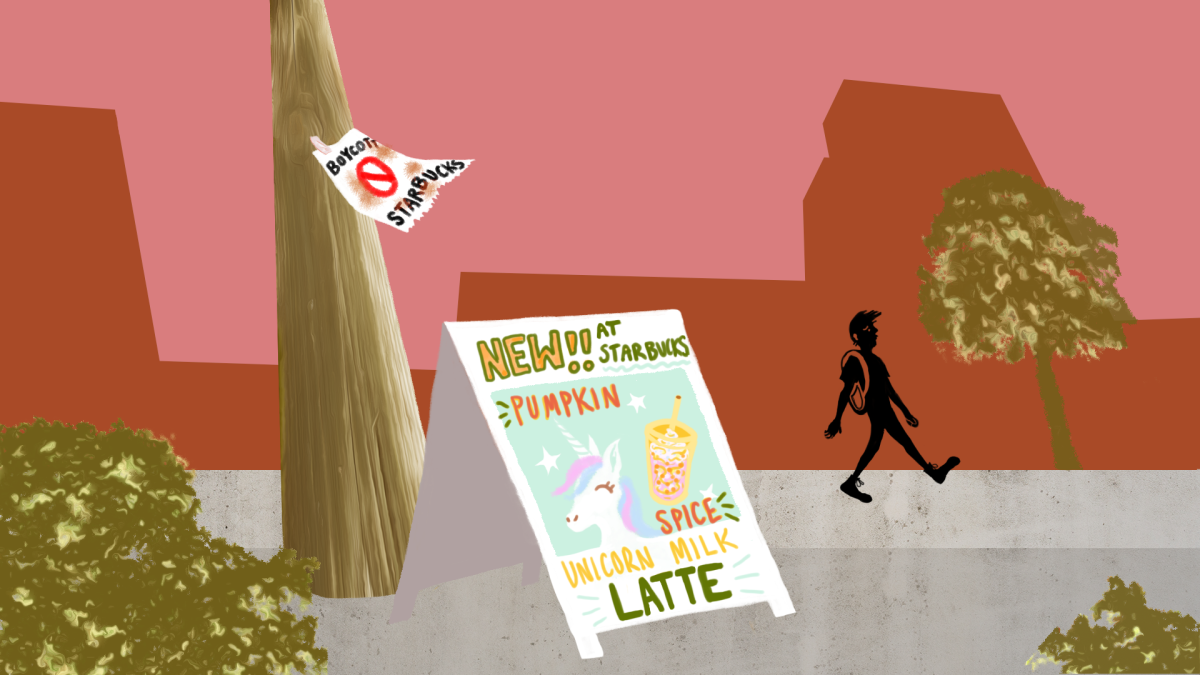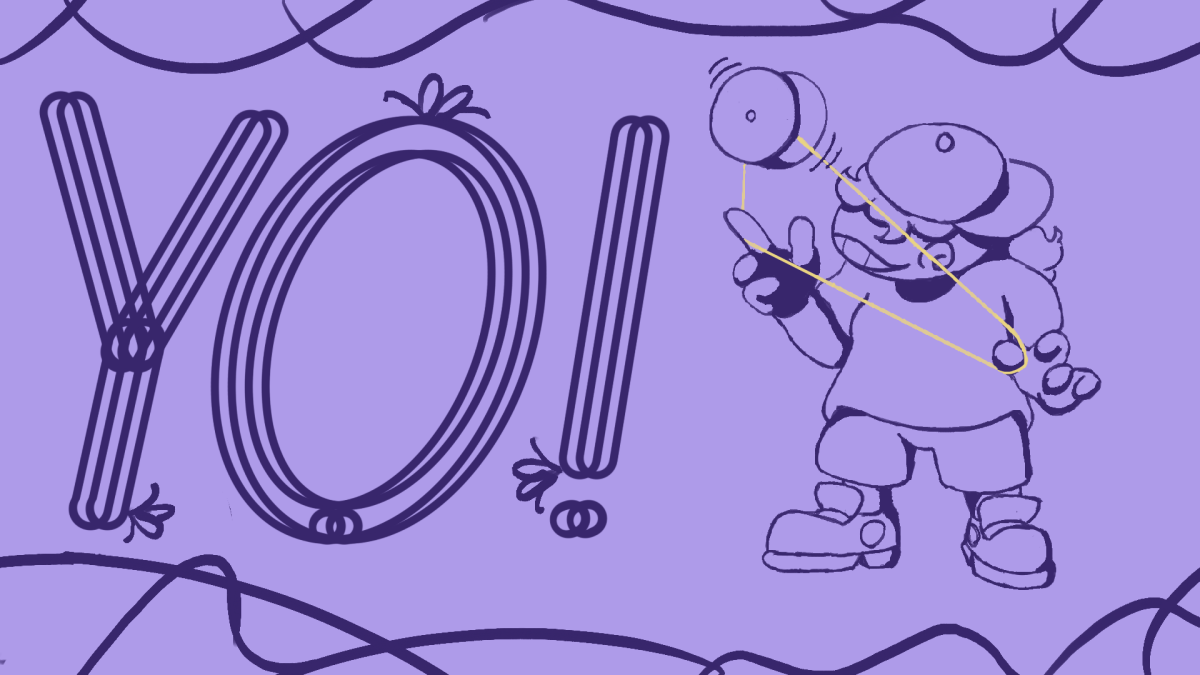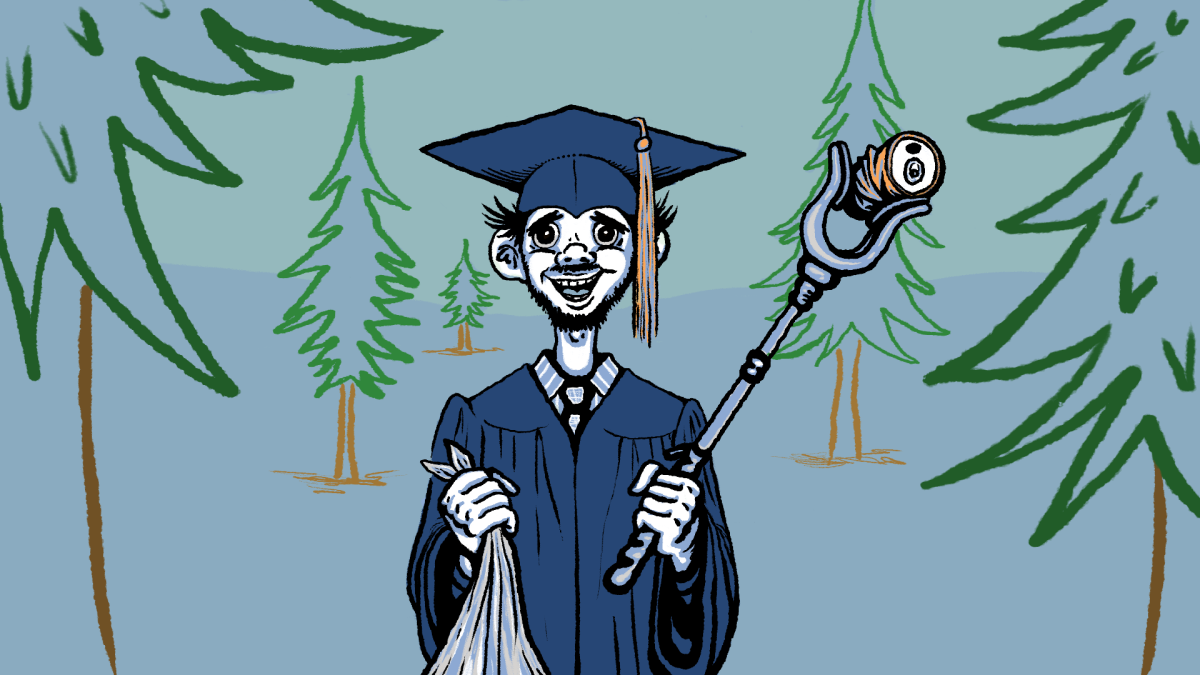“Take a moment and discuss amongst yourselves.”
Give me a break.
We thrive on our own mental energy, not the energy leftover from exhaustive interactions with too many people. We are most effective and valuable once we’ve taken a step back from a situation, inquisitively examined it with unencumbered eyes and formulated a complete and thorough response on how to approach or improve it.
We are introverted, and we are incompatible with the dominant collegiate culture.
First, some clarification. Introverted does not mean “shy.” This is a popular falsehood that has made its way into conventional wisdom. In her book “Quiet”, author Susan Cain offers a concise distinction between shyness and introversion, writing that “shyness is the fear of social disapproval or humiliation, while introversion is a preference for environments that are not overstimulating.”
Second, I take no inspiration from the laughable Myers-Briggs Type Indicator. According to Vox, the validity of this popular “personality test” has been thoroughly debunked by countless professional sources. My analysis relies on the original idea of introversion proposed by psychologist Carl Jung and expanded upon by the lauded Big 5 personality traits.
According to Forbes, the introvert needs “alone time to recharge,” requires low social stimulation, is no multitasker and prefers deep conversations over small talk. For me, introversion resembles reflection, introspection and solitude, deep and abstract dialogues with familiar people and the occasional social venture.
The key takeaway from these descriptions is that they greatly contrast our dominant collegiate culture, everywhere, and more specifically here at NC State. The evidence is in how we conduct our classes, organizations and events. Nguyen Phan from Collegiate Times writes that “college in particular focuses more on action than reflection. Classes require instructor-student interaction for participation points. Worse, individual work is discarded to clear the way for forming large groups.”
This is a prevalent trend across disciplines. The bane of any introverted student’s existence is being “required” to think with random people. Group discussion, projects and presentations given for the sake of variety do nothing but exacerbate the already nontraditional role of sharing ideas. Group participation should be a choice; requiring it prioritizes extroverted thinking and alienates potentially invaluable introverted qualities.
Why the assumption that any of us need or want to know each other’s’ thoughts?
If I truly have nothing to immediately offer in the moment, don’t force me to rack my brain for an unstable response to a situation being driven by attention seekers. Extroverts, on impulse, speak their mind, while introverts mind what they speak. Subjecting classes to this narrow and frankly disruptive type of behavior denies introverts their most valuable traits.
Introverts devote significantly more time to reflecting on and formulating well thought out responses, inquiries and insights. Sure, participation can help strengthen key communicative skills, and those skills certainly have their place. The implication, however, that someone either isn’t learning or won’t be useful without involuntarily blabbering is ludicrous. According to Phan, “introverts have [their] own strengths, but they are not being valued. For one, [they] are generally more creative because creativity can better flourish in the state of solitude.”
Things are no better outside the classroom. According to the Odyssey article “The World Wasn’t Built For Introverts,” introverts value and thrive in solitude while extroverts “crave social stimulation by being with many people, and are energized by social situations. They love attention, have a wide circle of friends, and get bored quickly.”
Sound familiar? Most relevant campus-wide events, club functions or organization open houses are contingent on the notion that those who show up are inspired and energized by boisterous company. Attendees are encouraged to enthusiastically converse with random people, decipher and inquire about countless pamphlets and brochures and simultaneously contribute to the “life of the party.” Without sufficient time, space or attention to process any of this, any introverts who happen to attend will be, by design, fish out of water.
It’s not difficult to imagine that introverted tendencies resemble demeanors of disinterest, boredom or false shyness. A “loud” environment, by all meanings of the word, inhibits the natural interactive structures of introverts. Such noisy social interference offers less opportunities to develop and utilize complex thoughts.
The criteria and practices used to identify the students most deserving of or suitable for certain academic and professional opportunities are indeed biased toward the loudest people in the room. The “hidden” talents and accomplishments of inward-thinkers fly under the radar due to the lack of social devices in place that properly and adequately detect them.
This calls for a drastic rebalancing in the way that scholastic talent, potential and aptitude is discovered and rewarded. Academic officials, both inside and outside classrooms, need to be more aware of the compatibility of their practices with the variation in how students conduct themselves. Otherwise, countless introverted students will remain lost in the proverbial wilderness of their biased campus culture.





